
Keetmanshoop: The Heart of Namibia's South
Keetmanshoop is a charming town in southern Namibia, known for its rich history and vibrant culture. Founded in 1866, it serves as a gateway to some of the most stunning landscapes in the region. The town is named after Johann Keetman, a German industrialist who played a significant role in its development. Visitors to Keetmanshoop can explore the fascinating Quiver Tree Forest, home to the unique Aloe dichotoma. These ancient trees, some over 200 years old, create a surreal landscape that is perfect for photography. Another natural wonder nearby is the Giant's Playground, a geological marvel with massive dolerite rock formations that resemble a giant's toy blocks. The town itself offers a glimpse into Namibia's colonial past with its well-preserved German architecture. The Keetmanshoop Museum, housed in the old Rhenish Mission Church, provides an in-depth look at the area's history and culture. For a more modern experience, visitors can enjoy local cuisine at one of the town’s cozy cafes and restaurants. Keetmanshoop is also an excellent base for exploring the wider Karas region. From here, you can easily reach the Fish River Canyon, the second-largest canyon in the world. Whether you're an adventure seeker or a history buff, Keetmanshoop has something to offer everyone.
Local tips in Keetmanshoop
- Visit the Quiver Tree Forest during sunrise or sunset for the best lighting.
- Wear sturdy shoes when exploring the Giant's Playground, as the terrain can be uneven.
- Check out the local markets for unique Namibian crafts and souvenirs.
- Plan a day trip to the Fish River Canyon for breathtaking views and hiking opportunities.
- Don't forget to bring sunscreen and a hat, as the sun can be very strong.
Keetmanshoop: The Heart of Namibia's South
Keetmanshoop is a charming town in southern Namibia, known for its rich history and vibrant culture. Founded in 1866, it serves as a gateway to some of the most stunning landscapes in the region. The town is named after Johann Keetman, a German industrialist who played a significant role in its development. Visitors to Keetmanshoop can explore the fascinating Quiver Tree Forest, home to the unique Aloe dichotoma. These ancient trees, some over 200 years old, create a surreal landscape that is perfect for photography. Another natural wonder nearby is the Giant's Playground, a geological marvel with massive dolerite rock formations that resemble a giant's toy blocks. The town itself offers a glimpse into Namibia's colonial past with its well-preserved German architecture. The Keetmanshoop Museum, housed in the old Rhenish Mission Church, provides an in-depth look at the area's history and culture. For a more modern experience, visitors can enjoy local cuisine at one of the town’s cozy cafes and restaurants. Keetmanshoop is also an excellent base for exploring the wider Karas region. From here, you can easily reach the Fish River Canyon, the second-largest canyon in the world. Whether you're an adventure seeker or a history buff, Keetmanshoop has something to offer everyone.
When is the best time to go to Keetmanshoop?
Iconic landmarks you can’t miss
Wimpy
Discover Wimpy in Keetmanshoop: Your go-to fast-food destination for comfort meals along the scenic B1 National Road.
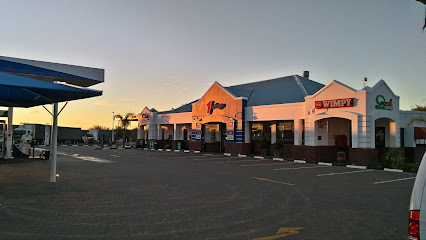
Central Lodge
Central Lodge in Keetmanshoop combines comfort and local charm, perfect for travelers seeking an authentic Namibian experience.

KFC Keetmanshoop
Experience the comforting taste of Kentucky Fried Chicken at KFC Keetmanshoop, where delicious flavors meet local charm.
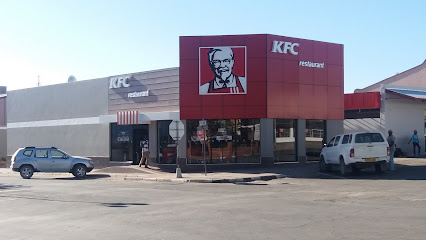
Schützenhaus Guesthouse
Experience the flavors of Namibia at Schützenhaus Guesthouse, a charming restaurant in Keetmanshoop offering local cuisine and warm hospitality.

Maritz Country Lodge
Discover the serene beauty of Namibia at Maritz Country Lodge, a cozy retreat just outside Keetmanshoop, offering comfort and local charm.

Quiver Inn Guesthouse
Experience the charm of Quiver Inn Guesthouse in Keetmanshoop, where comfort meets local culture for an unforgettable stay.

Bird's Mansions Hotel
Discover comfort and local charm at Bird's Mansions Hotel, your ideal base for exploring the beauty and adventure of South Namibia.

Keetmanshoop Self-Catering Accommodation
Discover the perfect blend of comfort and convenience at Keetmanshoop Self-Catering Accommodation in Namibia, your gateway to adventure.
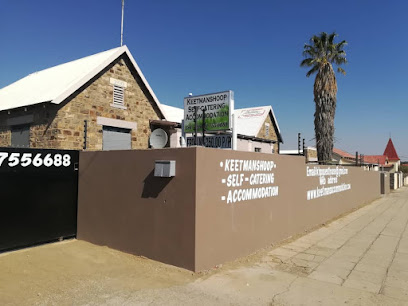
Quivertree Forest Rest Camp
Discover the enchanting Quivertree Forest Rest Camp in Namibia, where unique quivertrees and stunning landscapes create an unforgettable camping experience.
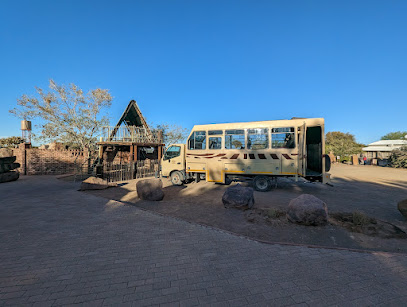
Canyon
Experience the beauty of Namibia at Canyon, a unique hotel in Keetmanshoop, offering comfort amidst breathtaking landscapes and adventure.

Adlerdenkmal
Discover the significance of Adlerdenkmal in Keetmanshoop, a historical landmark that symbolizes Namibia's journey to independence and cultural pride.
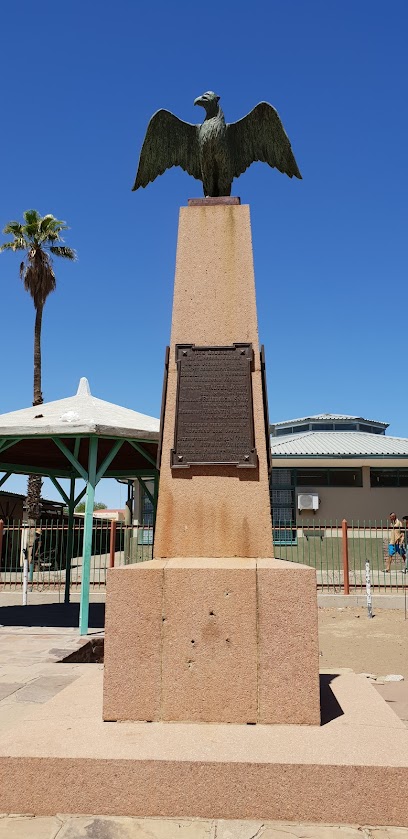
Keetmanshoop Museum
Explore the Keetmanshoop Museum for a deep dive into Namibia's vibrant history and diverse cultural heritage, showcasing artifacts and stories of the past.
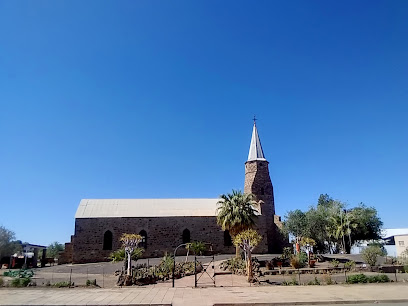
Keetmanshoop Town Hotel
Discover the warm hospitality and comfort of Keetmanshoop Town Hotel, your perfect home base for exploring Namibia's stunning landscapes.
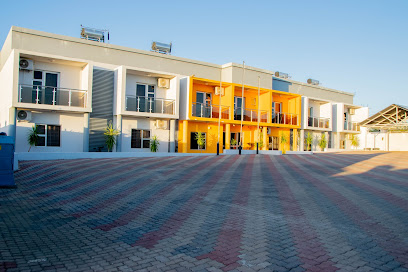
OLPH R. C.
Explore the architectural beauty and spiritual tranquility of OLPH R. C. in Keetmanshoop, a serene Catholic church that invites reflection.
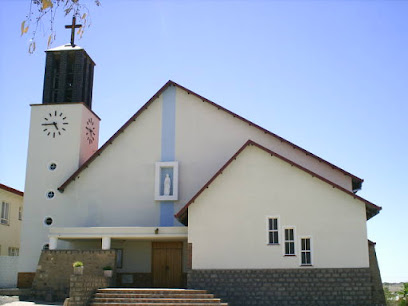
Quiver Tree Forest
Discover the magical Quiver Tree Forest in Namibia, a surreal landscape filled with unique flora and breathtaking views perfect for nature lovers and adventurers.
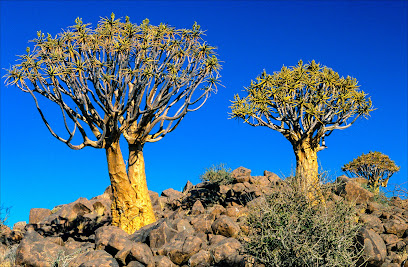
Unmissable attractions to see
Giant's Playground
Discover the surreal rock formations of Giant's Playground in Namibia, a breathtaking natural attraction perfect for adventure and photography enthusiasts.
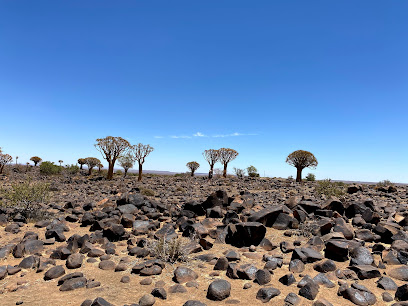
Adlerdenkmal
Explore Adlerdenkmal in Keetmanshoop, a significant historical landmark that encapsulates Namibia's rich cultural heritage and offers stunning views.
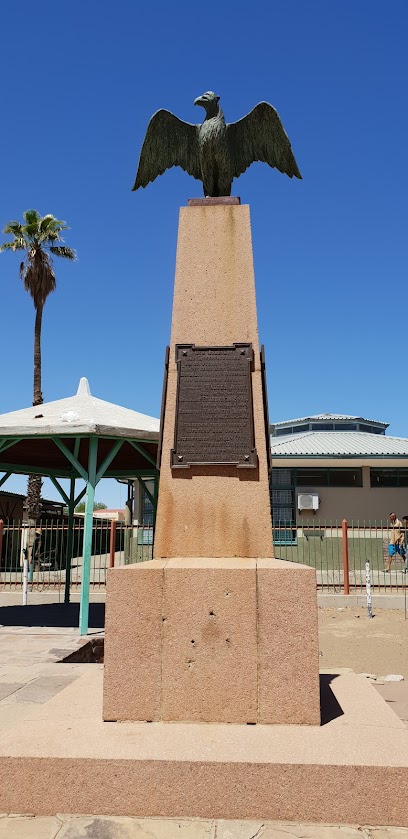
Keetmanshoop Museum
Explore the Keetmanshoop Museum – a cultural gem in Namibia showcasing the rich history and heritage of the region through fascinating exhibits.
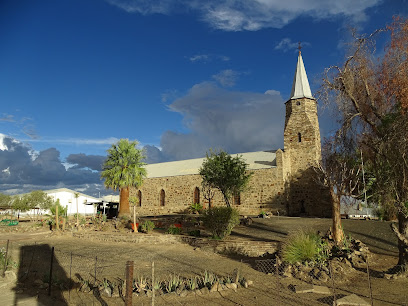
Quiver Tree Forest
Explore the surreal beauty of Quiver Tree Forest, a natural wonder in Namibia, home to unique quiver trees and stunning landscapes.
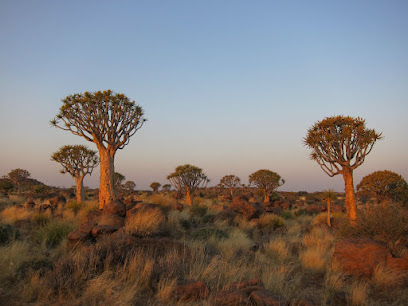
Spielplatz der Riesen
Explore the enchanting Spielplatz der Riesen in Namibia, where oversized playgrounds meet serene greenery, perfect for family fun and relaxation.
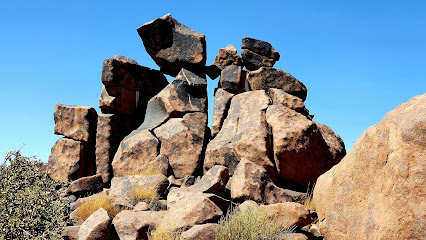
Naute Dam, Keetmanshoop, Namibia
Explore the breathtaking natural beauty of Naute Dam, a serene preserve in Keetmanshoop, Namibia, perfect for outdoor adventures and relaxation.
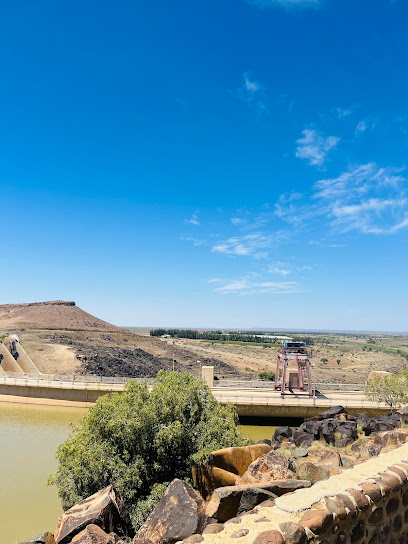
Brukkaros Crater
Explore Brukkaros Crater, a stunning volcanic landmark in Namibia, rich in history and natural beauty, perfect for adventure seekers and nature enthusiasts.
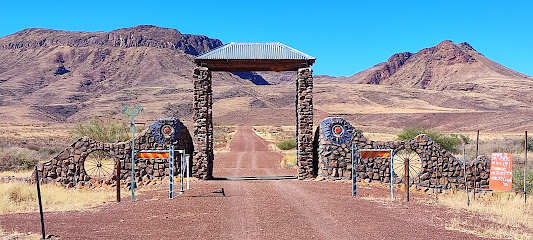
Essential places to dine
Wimpy
Experience delicious fast food at Wimpy in Keetmanshoop - perfect for travelers seeking quick meals on their journey through Namibia.
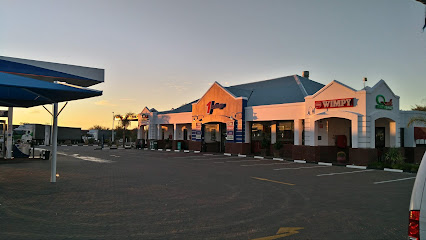
Central Lodge
Experience the perfect blend of culinary excellence and comfort at Central Lodge in Keetmanshoop – where every meal tells a story.

KFC Keetmanshoop
Discover delicious fast food at KFC Keetmanshoop - where crispy chicken meets Namibian hospitality.
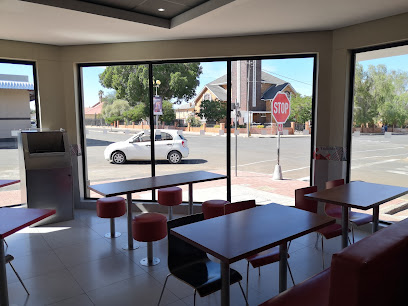
Schützenhaus Guesthouse
Savor the flavors of Namibia at Schützenhaus Guesthouse – a culinary gem in Keetmanshoop offering authentic local dishes.

Quiver Inn Guesthouse
Discover comfort and hospitality at Quiver Inn Guesthouse in Keetmanshoop – your perfect retreat in Namibia's stunning landscapes.

Alte Kalkofen Lodge
Experience unparalleled comfort and unique local charm at Alte Kalkofen Lodge in Keetmanshoop, Namibia's hidden gem for travelers.
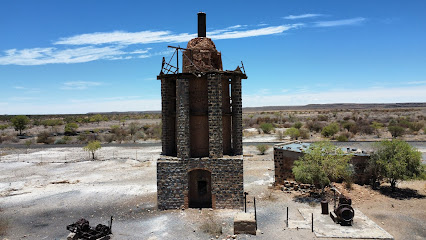
Bird's Mansions Hotel
Experience comfort and hospitality at Bird's Mansions Hotel in Keetmanshoop, your gateway to explore South Namibia's natural beauty.

Naute Kristall Cellar and Distillery
Explore Naute Kristall Cellar and Distillery: A unique experience blending local flavors with fine craftsmanship in Namibia's scenic landscape.
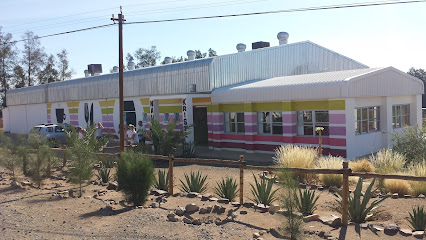
Quivertree Forest Rest Camp
Discover tranquility at Quivertree Forest Rest Camp amidst Namibia's unique quivertrees and breathtaking landscapes.
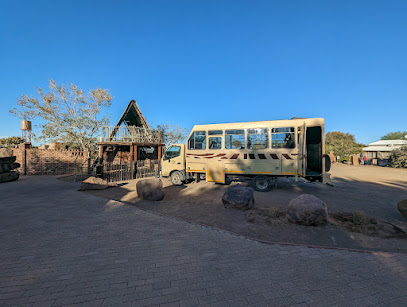
Kitchen51 Cottages
Discover the serene beauty of Keetmanshoop at Kitchen51 Cottages—where comfort meets nature's tranquility.
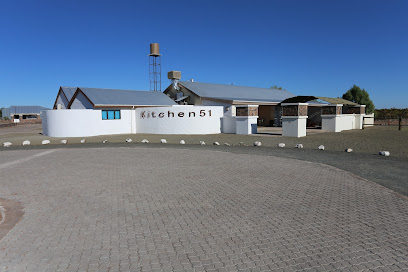
Home Sweet Home
Discover comfort at Home Sweet Home in Keetmanshoop – your ideal hotel for relaxation and exploration in Namibia.
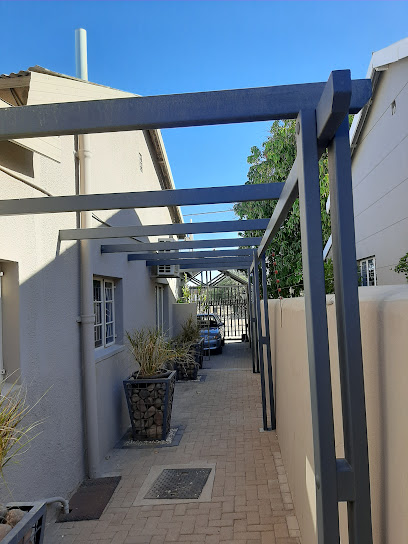
Canyon
Discover Canyon: A serene escape in Keetmanshoop offering breathtaking landscapes and cozy accommodations for every traveler.

Illy Coffee Shop and Tourist Info Centre
Discover great coffee and travel tips at Illy Coffee Shop & Tourist Info Centre in Keetmanshoop - your cozy stop for adventure planning!
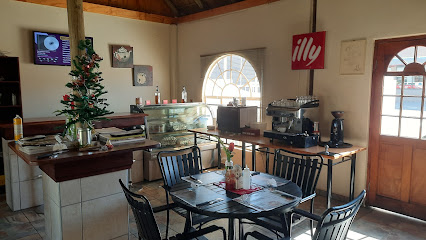
MarCellas Coffee Shop
Discover the inviting atmosphere of MarCellas Coffee Shop in Keetmanshoop, where exceptional coffee meets local charm.
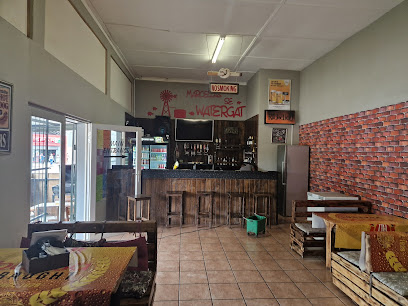
The Barrelhouse Bar and Restaurant
Discover vibrant dining at The Barrelhouse Bar and Restaurant in Keetmanshoop - where great food meets lively entertainment!
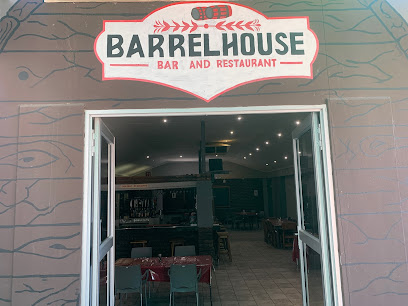
Markets, malls and hidden boutiques
Shoprite Keetmanshoop
Discover local flavors and essentials at Shoprite Keetmanshoop, a supermarket that combines affordability with quality in Namibia.
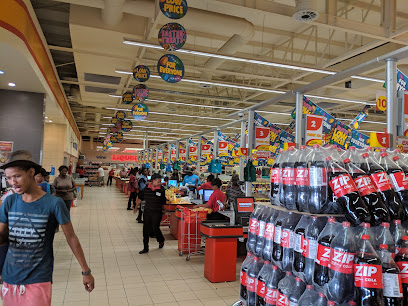
Woermann and Brock
Explore local flavors and everyday essentials at Woermann and Brock, Keetmanshoop's favorite grocery store for tourists and locals.
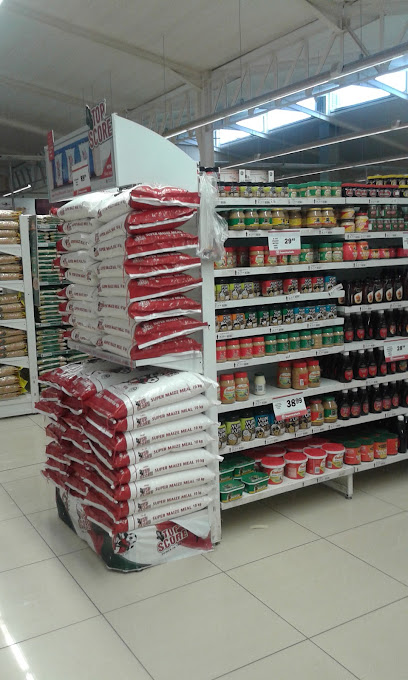
SPAR
Explore local flavors and essentials at SPAR, the premier supermarket in Keetmanshoop, where convenience meets quality shopping.
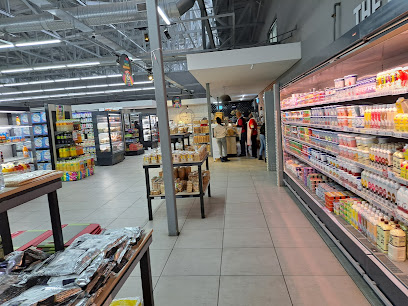
Pick n Pay
Explore Pick n Pay in Keetmanshoop for fresh produce, local delicacies, and a unique shopping experience in Namibia.
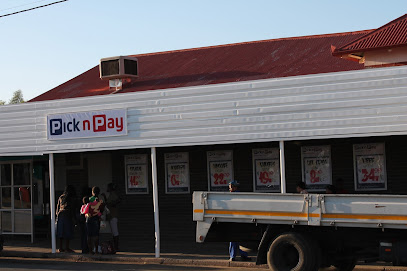
Pupkewitz Megabuild
Explore Pupkewitz Megabuild in Keetmanshoop for all your hardware and grocery needs, blending convenience with local charm.
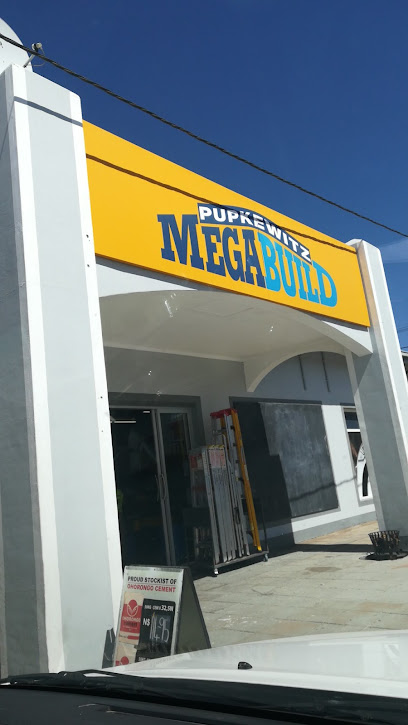
Illy Coffee Shop and Tourist Info Centre
Discover the perfect blend of coffee and travel tips at Illy Coffee Shop, your go-to destination in Keetmanshoop, Namibia.
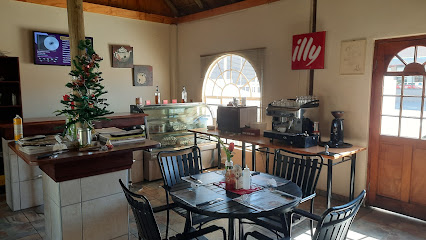
OK Furniture Keetmanshoop
Explore stylish and affordable home furnishings at OK Furniture Keetmanshoop, where local craftsmanship meets modern design.
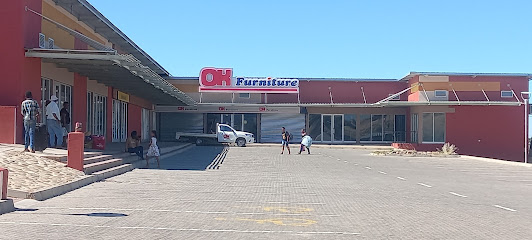
PEP Keetmanshoop Retail Centre
Explore the PEP Keetmanshoop Retail Centre for stylish, affordable clothing for the whole family in a friendly shopping environment.
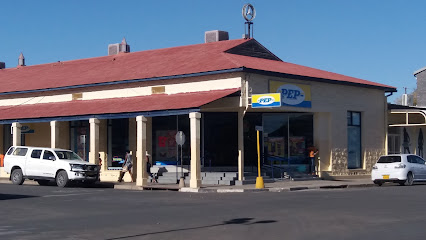
Corner Shop
Explore the Corner Shop in Keetmanshoop – your go-to destination for unique home goods and authentic Namibian crafts.
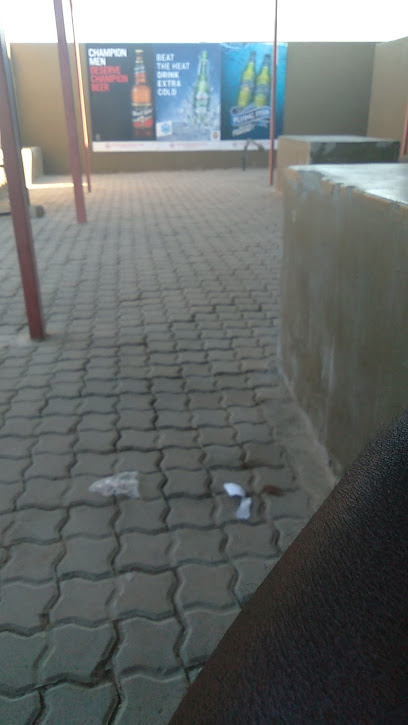
Waltons Keetmanshoop
Explore Waltons Keetmanshoop, a charming pen store offering a wide range of stationery and writing essentials for every creative soul.
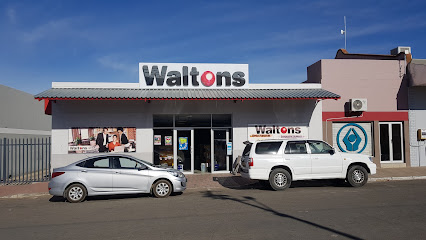
Mr Price / MRP
Explore Mr Price in Keetsmanshoop for trendy, affordable fashion and a vibrant shopping experience in Namibia.

Jika Jika Supermarket
Experience local culture and vibrant shopping at Jika Jika Supermarket in Keetmanshoop, where diversity and community converge.
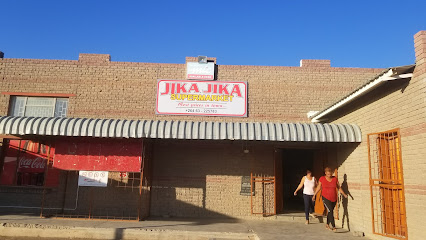
The Crazy Store Keetmanshoop
Discover a treasure trove of gifts, toys, and home goods at The Crazy Store Keetmanshoop, where affordability meets variety in a vibrant shopping atmosphere.
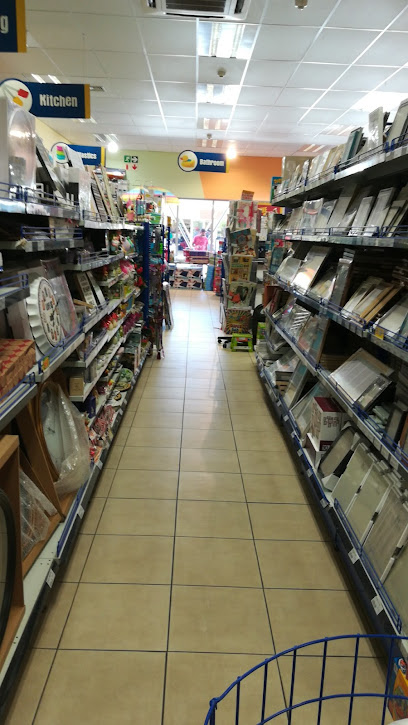
Lewis Keetmanshoop
Discover quality furniture and home essentials at Lewis Keetmanshoop - your one-stop destination for style and comfort.
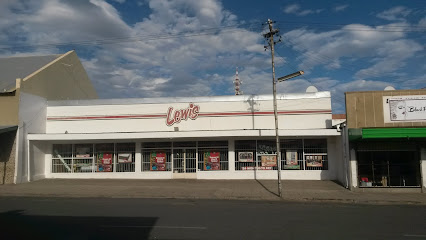
Eric's Shop
Explore Eric's Shop in Keetmanshoop for unique local crafts and souvenirs that celebrate Namibian culture.
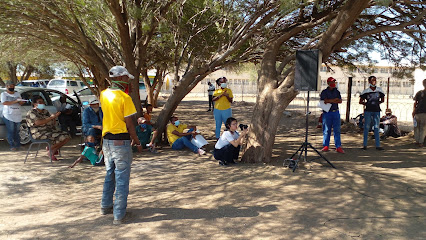
Essential bars & hidden hideouts
Wimpy
Discover Wimpy in Keetmanshoop, where fast food meets comfort, perfect for travelers seeking delicious meals on their journey.
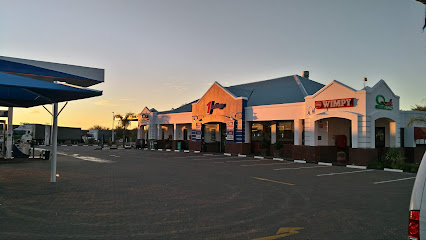
Central Lodge
Discover the flavors of Namibia at Central Lodge, a cozy restaurant and hotel in Keetmanshoop offering delightful dishes and warm hospitality.

Schützenhaus Guesthouse
Discover the rich flavors of Namibia at Schützenhaus Guesthouse, a cozy restaurant in Keetmanshoop offering authentic cuisine and warm hospitality.

Quiver Inn Guesthouse
Experience the charm of Keetmanshoop at Quiver Inn Guesthouse, where comfort meets local culture in the heart of Namibia.

Bird's Mansions Hotel
Experience the perfect blend of comfort and local cuisine at Bird's Mansions Hotel in Keetmanshoop, South Namibia.

Canyon
Experience comfort and serenity at Canyon Hotel in Keetmanshoop, where nature meets hospitality in the heart of Namibia.

tseiblaagte sportsbar & club
Discover the lively atmosphere and local culture at Tseiblaagte Sportsbar & Club, your go-to destination for entertainment and socializing in Keetmanshoop.
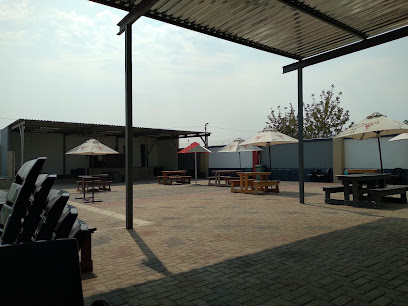
MarCellas Coffee Shop
Experience the warmth of MarCellas Coffee Shop in Keetmanshoop, where every cup of coffee tells a story and every visit feels like home.
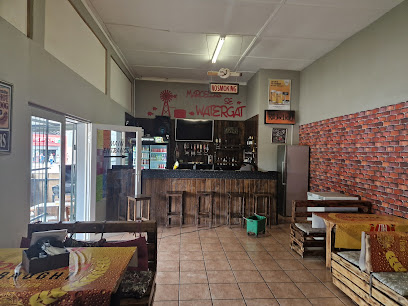
GN111 Bar
Experience the vibrant atmosphere at GN111 Bar in Keetmanshoop, where locals and tourists come together for drinks and lively conversations.
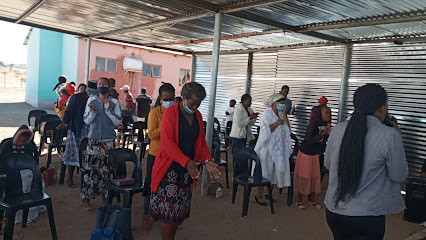
The Barrelhouse Bar and Restaurant
Experience local flavors and a lively atmosphere at The Barrelhouse Bar and Restaurant, the perfect dining destination in Keetmanshoop.
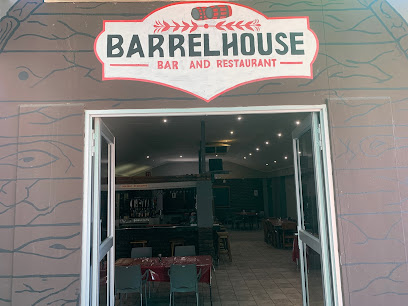
Keetmanshoop Town Hotel
Experience comfort and hospitality at Keetmanshoop Town Hotel, your ideal base for exploring the beauty of Namibia.
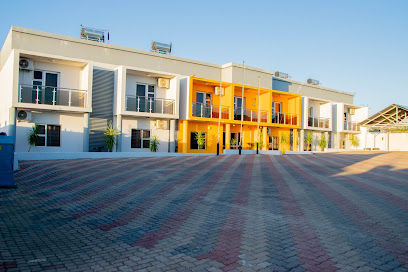
Homeground Lounge
Discover the vibrant atmosphere of Homeground Lounge in Keetmanshoop, where relaxation meets social interaction in a delightful setting.
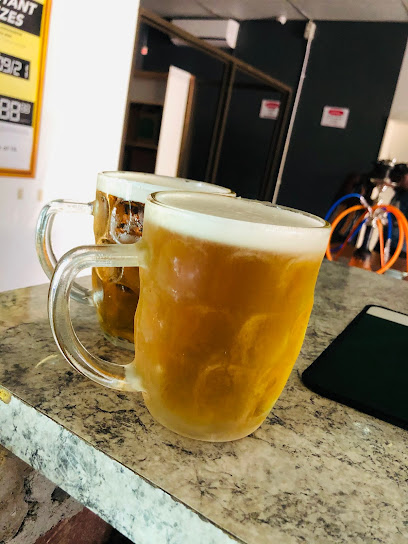
Hungry Lion Keetmanshoop
Visit Hungry Lion Keetmanshoop for irresistible fried chicken and fast food delights in a lively mall setting.
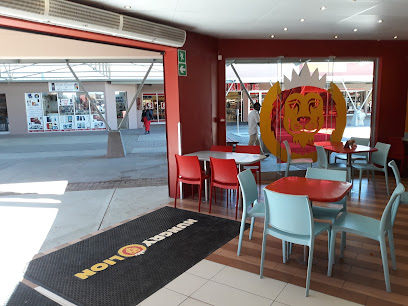
REMEMBER INN STREET
Discover the vibrant nightlife at Remember Inn Street in Keetmanshoop, where refreshing drinks and lively entertainment await.
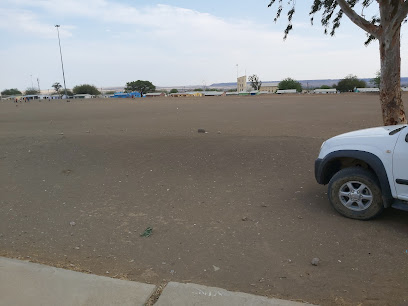
Mohegan Grill
Discover the flavors of Keetmanshoop at Mohegan Grill, a must-visit restaurant in the Old Mutual Mall offering diverse and delicious dining options.

Local Phrases
-
- HelloHallo
[ha-llo] - GoodbyeTotsiens
[toht-see-ens] - YesJa
[yah] - NoNee
[nee] - Please/You're welcomeAsseblief
[ah-suh-bleef] - Thank youDankie
[dahn-kee] - Excuse me/SorryJammer
[yah-mehr] - How are you?Hoe gaan dit met jou?
[ho gahn dit met yoh] - Fine. And you?Goed. En met jou?
[khoot. en met yoh] - Do you speak English?Praat jy Engels?
[praht y eng-els] - I don't understandEk verstaan nie
[ehk verstahn nee]
- HelloHallo
-
- I'd like to see the menu, pleaseEk wil asseblief die spyskaart sien
[ehk vil ah-suh-bleef dee speys-kahrt seen] - I don't eat meatEk eet nie vleis nie
[ehk ayt nee fleys nee] - Cheers!Gesondheid!
[guh-suhnt-hait] - I would like to pay, pleaseEk wil asseblief betaal
[ehk vil ah-suh-bleef buh-tahl]
- I'd like to see the menu, pleaseEk wil asseblief die spyskaart sien
-
- Help!Hulp!
[huhlp] - Go away!Gaan weg!
[kahn vehk] - Call the Police!Bel die Polisie!
[behl dee poh-lee-see] - Call a doctor!Bel 'n dokter!
[behl uhn dohk-tehr] - I'm lostEk is verlore
[ehk is fehr-loh-ruh] - I'm illEk is siek
[ehk is seek]
- Help!Hulp!
-
- I'd like to buy...Ek wil koop...
[ehk vil kohp] - I'm just lookingEk kyk net
[ehk kik neht] - How much is it?Hoeveel kos dit?
[hu-fayl kohs dit] - That's too expensiveDit is te duur
[dit is teh doo-er] - Can you lower the price?Kan jy die prys laat sak?
[kahn y dee prays laht sahk]
- I'd like to buy...Ek wil koop...
-
- What time is it?Hoe laat is dit?
[hu laht is dit] - It's one o'clockDit is een uur
[dit is ayn oor] - Half past (10)Half tien
[hahlf teen] - MorningOggend
[oh-khent] - AfternoonMiddag
[mi-dahkh] - EveningAand
[ahnt] - YesterdayGister
[gi-stuhr] - TodayVandag
[fahn-dahkh] - TomorrowMôre
[moh-ruh] - 1Een
[ayn] - 2Twee
[twee] - 3Drie
[dree] - 4Vier
[feer] - 5Vyf
[fayf] - 6Ses
[sehs] - 7Sewe
[seh-veh] - 8Agt
[ahght] - 9Nege
[nee-yeh] - 10Tien
[teen]
- What time is it?Hoe laat is dit?
-
- Where's a/the...?Waar is 'n/die...?
[vahr is uhn/dee] - What's the address?Wat is die adres?
[vaht is dee ah-drehs] - Can you show me (on the map)?Kan jy my wys (op die kaart)?
[kahn y may vees (ohp dee kahrt)] - When's the next (bus)?Wanneer is die volgende (bus)?
[vahn-ehr is dee fohl-uhn-duh (buhs)] - A ticket (to ....)'n Kaartjie (na ....)
[uhn kahrt-yuh (nah)]
- Where's a/the...?Waar is 'n/die...?
History of Keetmanshoop
-
Keetmanshoop was founded in 1866 by the Rhenish Missionary Society. It was named after Johann Keetman, a German industrialist who supported the mission financially. The town quickly became a vital stopover for traders and travelers due to its strategic location.
-
Long before the arrival of European settlers, the area around Keetmanshoop was inhabited by the Nama people. They were known for their pastoral lifestyle and their skill in leatherwork and craftsmanship. The Nama people played a crucial role in the early history and culture of the region.
-
Keetmanshoop became a significant center during the German colonial period in the late 19th and early 20th centuries. The town served as an administrative and military outpost. Several buildings from this era, including the old German military headquarters, still stand today, offering a glimpse into the town's colonial past.
-
Located just outside Keetmanshoop, the Quiver Tree Forest is a unique and significant natural landmark. The forest consists of thousands of quiver trees, a species of aloe endemic to southern Namibia. The trees were traditionally used by the San people to make quivers for their arrows, and the forest is now a protected area and popular tourist attraction.
-
During the Namibian War of Independence, Keetmanshoop played a pivotal role as a logistical center. The town was a strategic location for the South African Defense Forces and the South West Africa People's Organization (SWAPO). Several key operations and events took place in and around Keetmanshoop during this period.
-
Since Namibia gained independence in 1990, Keetmanshoop has experienced significant development. The town has grown economically, with improvements in infrastructure, education, and healthcare. It has become a hub for travelers exploring southern Namibia and continues to celebrate its rich cultural heritage.
Keetmanshoop Essentials
-
Keetmanshoop is located in southern Namibia. The nearest international airport is Hosea Kutako International Airport in Windhoek, approximately 500 kilometers away. From Windhoek, you can rent a car or take a long-distance bus, which typically takes about 5 to 6 hours by road. Another option is to take a domestic flight to Keetmanshoop Airport, although flights are limited and may not be available daily.
-
Keetmanshoop is a small town, and many of its attractions are within walking distance. For longer trips, local taxis are available and relatively inexpensive. There are also car rental services if you prefer to explore the area on your own. Public buses and shuttle services connect Keetmanshoop to other towns and cities in Namibia.
-
The official currency in Namibia is the Namibian Dollar (NAD), which is pegged to the South African Rand (ZAR). Credit cards are accepted in most hotels, restaurants, and shops. However, it is advisable to carry some cash, especially when visiting smaller establishments or rural areas. ATMs are available in Keetmanshoop for cash withdrawals.
-
Keetmanshoop is generally a safe destination for tourists. However, like any travel destination, it is advisable to take standard precautions. Avoid walking alone at night in unfamiliar areas and keep an eye on your belongings in crowded places. While there are no specific high-crime areas targeting tourists, it is always best to stay vigilant and aware of your surroundings.
-
In case of emergency, dial 10111 for police assistance or 203911 for medical emergencies. Keetmanshoop has a hospital and several clinics that can provide medical care. It is recommended to have travel insurance that covers medical emergencies. For minor health issues, there are pharmacies in town where you can purchase over-the-counter medications.
-
Fashion: Do dress modestly, especially when visiting religious sites or rural areas. Avoid wearing overly revealing clothing. Religion: Do respect local customs and traditions. When visiting churches, dress conservatively and behave respectfully. Public Transport: Do be respectful and considerate of other passengers. Don't eat or drink on public transport. Greetings: Do greet people with a handshake. A friendly 'Hello' or 'Goeie Dag' (Good Day in Afrikaans) is appreciated. Eating & Drinking: Do try local delicacies and accept food offerings graciously. Don't refuse hospitality, as it is considered impolite.
-
To experience Keetmanshoop like a local, visit the local markets where you can buy fresh produce and traditional Namibian goods. Engage with locals, as they are often friendly and willing to share stories about the town's history and culture. Don’t miss visiting the Quiver Tree Forest and Giant's Playground, both of which offer unique natural landscapes. For a picturesque experience, take a walk around the historic railway station and explore the old German colonial buildings.
Trending Landmark in Keetmanshoop
Nearby Cities to Keetmanshoop
-
Things To Do in Mariental
-
Things To Do in Lüderitz
-
Things To Do in Windhoek
-
Things To Do in Okahandja
-
Things To Do in Walvis Bay
-
Things To Do in Karibib
-
Things To Do in Swakopmund
-
Things To Do in Usakos
-
Things To Do in Omaruru
-
Things To Do in Otjiwarongo
-
Things To Do in Kimberley
-
Things To Do in Outjo
-
Things To Do in Lobatse
-
Things To Do in Molepolole
-
Things To Do in Gaborone








